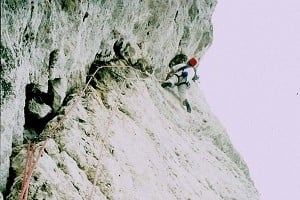
Alongside the Huber brothers, Iker and Eneko Pou are one of the most well-known sibling pairs in climbing. Born in the Basque Country in northern Spain, the surrounding mountains introduced both Iker and Eneko to adventure from a young age.
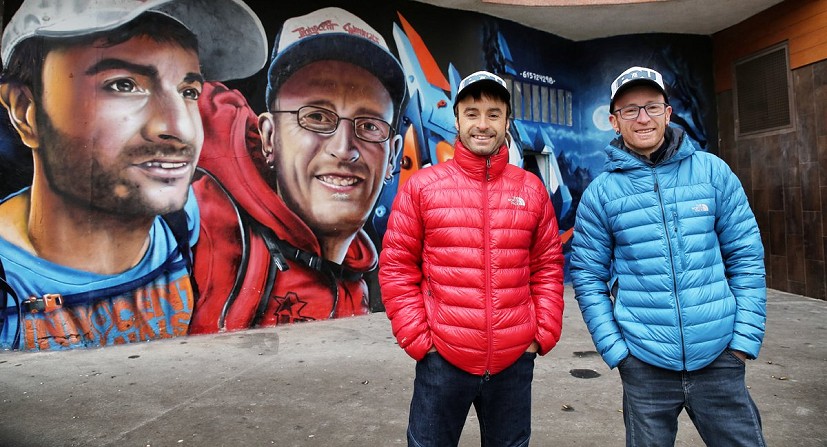
Proving himself as a sport climber to contend with, younger brother Iker's second ascent of Wolfgang Güllich's Action Directe 9a in 2000 brought the Pou siblings into the limelight. A shared passion for climbing and mountaineering saw the pair develop into well-rounded outdoor athletes, with Eneko taking part in expeditions to the Greater Ranges and eventually becoming a mountain guide. Their combined skills and strengths complemented each other well, resulting in numerous diverse projects being undertaken and achieved together.
The 13-pitch big wall route Orbayu (F8c+/9a) on the West Face of El Naranjo de Bulnes in Spain's Picos de Europa in 2009 remains one of the brothers' biggest achievements to date, alongside their '7 walls, 7 continents' project. Now living on Mallorca, the 'Hermanos Pou' are still climbing together and constantly looking forward to their next adventure.
We sent them some questions to find out more about their brotherly climbing partnership...
'Even if you know your partner well, it will never be the same as climbing with your brother.'
You grew up in the Basque Country. How did you both discover climbing?
We were born into a very adventurous family, like many people in the Basque Country. Our parents have always climbed mountains, and our father in particular climbed a lot and joined expeditions. We discovered climbing in a natural way and from a very young age we spent all our holidays climbing mountains. First in the Pyrenees and some years later in the Alps. From time to time we also made ascents of small peaks and ridges under the guidance of our father. At about 15 years of age we began to climb more seriously and continuously. At first we did a lot of alpine climbing combined with sport climbing.
After a few years, Eneko was still more attracted to mountaineering (ice climbing, extreme ski, big walls) and I was focussing more on sport climbing, but without leaving mountaineering aside completely.
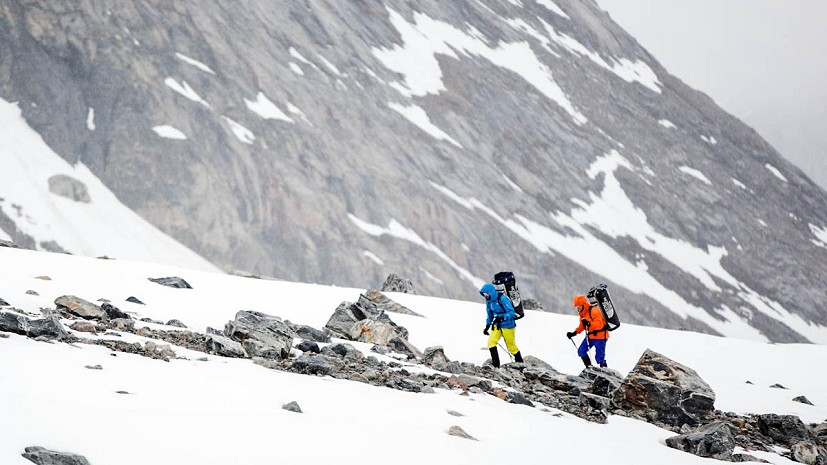
Are you similar in your approach to climbing, or are you very different in your training, motivation, goals etc?
Nowadays we are both more and more motivated for mountaineering and less for sport climbing, although we continue to enjoy having the occasional day of sport climbing to keep us as strong as possible. We still have to finish some other sport climbing projects that have been pending for a few years!
Eneko remains undoubtedly much more of an alpinist. He loves skiing and ice climbing and I have a preference for rock climbing, whether it be bouldering or big walls.
You seem to complement each other well - Iker focusses on extreme difficulty on top-end sport routes and Eneko as a mountain guide focusses on multiple disciplines in the mountains. Is it as simple as this, or is there any crossover in your interests?
Both of us together make for a very good team. If we add the best qualities of each of us and we unite them we can do many interesting things. Since we were very young, we have got along very well, and we know perfectly well each other's strengths and weaknesses. This makes everything easier when it comes to climbing together.
Is there any competitiveness between you as brothers?
Absolutely not! We are also very supportive of each other at all times, there is no real rivalry. We are each very happy when the other achieves the goals they have set.
As brothers you must have a very close connection as climbing partners. Do you spend much time climbing with other people, and does it feel strange or different?
We think that as brothers we have a great advantage compared to traditional roped teams. We have obviously known each other very well from an early age, and this makes it much easier to understand one another when things get complicated.
For expeditions and serious projects, almost always we climb together. We just like this, we are calmer. Yes, we often climb with other partners too, but it is not the same. We generally feel a bit strange, as we are very accustomed to climbing together. Although we regularly climb in groups with other people and it is usually more fun and we laugh more, in general it feels very different to climb serious projects with other climbers, the affinity is not the same. Even if you know your partner well, it will never be the same as climbing with your brother.
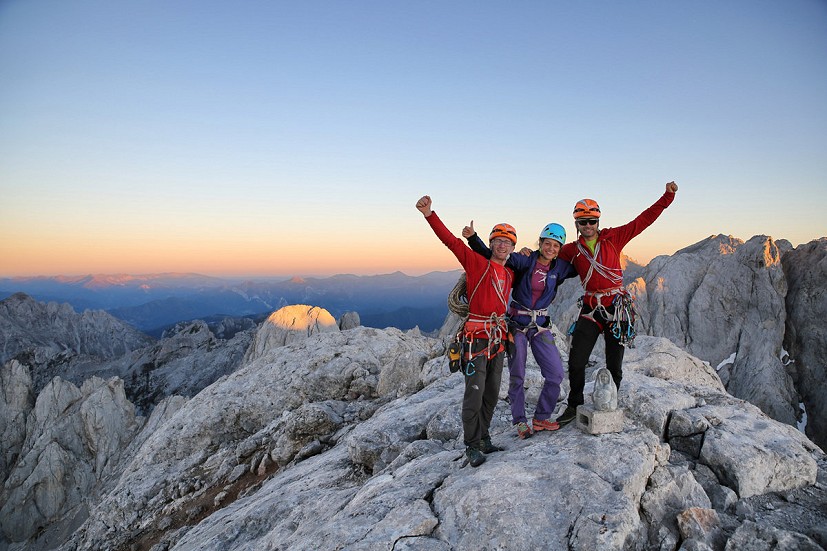
Tell us about Picu Urriellu, AKA Naranjo de Bulnes - what has brought you back to climb new routes there time and time again? Is there still more new route potential, with you both having either first freed or established six lines on the face, including most recently Marejada Fuerza 6 (UKC News report)?
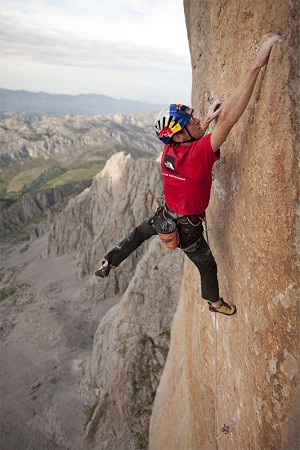
Undoubtedly, it is one of the best places in Europe for mountain routes. Its rock, its surroundings and its people make this place one of the best for all lovers of vertical adventures.
There are still things to do in the Picu, but we would say the most attractive and spectacular routes have already been done. Although there is still some untouched ground for the more restless climber!
Orbayu 8c+/9a (UKC News report) is probably your most well-known achievement to date. Is it also the route that you are most proud of?
We were very proud to open and achieve the first ascent of Orbayu. Undoubtedly it is the best route on limestone that we have ever opened. We are full of pride that every year people come to try it. You could say that it is a "King line" for its quality and beauty.
Although it is always difficult to say which of your routes you are most proud of, it will be without a doubt one of the best.
It's also worth mentioning our route on Baffin Island The Door 8b / 650m, alongside Hansjoerg Auer and Ben Lepesant.
You like to create big challenges, such as your '7 walls, 7 continents' and your 'Hardest of the Alps/Alpine Trilogy' challenge. What is the criteria for a challenge?
We are always looking for projects that motivate us, we try to unite our two passions: to go to the mountains and travel to see new places. Above all, we usually choose the places we visit based on three parametres: the beauty of the place, its attraction (our desire to climb it) and the difficulty of the climb.
You've traveled extensively around the world - where are your favourite spots to climb?
For sport climbing: Margalef, Frankejura, Mallorca, Asturias and in general, Spain.
For crack climbing, without doubt the USA. For big walls, ice and mountaineering, many places in the world are good value. Each place has its charm and it is difficult to decide on one in particular.
'If we don't have the necessary level to get us to certain places, it is better that we leave the ground free for future generations.'
What are your opinions on the ethics of bolting long mountain routes?
Our criteria is clear with respect to the ethics in mountain routes or long pitches: Always open and climb from the ground to the top, never abseil inspect the line. If you can place natural protection (cams, nuts, pitons) you can never put bolts. The bolt will always be the last option. In the case of placing bolts, each open-minded climber should decide how far apart they place them, according to their level and mental power. For difficult and safe routes, sport climbing already exists. We think that mountaineering and mountain routes have to have something more of an adventure than a line full of bolts. However difficult the line may be, sport climbing a mountain entirely does not make sense. If we don't have the necessary level to get us to certain places, it is better that we leave the ground free for future generations.
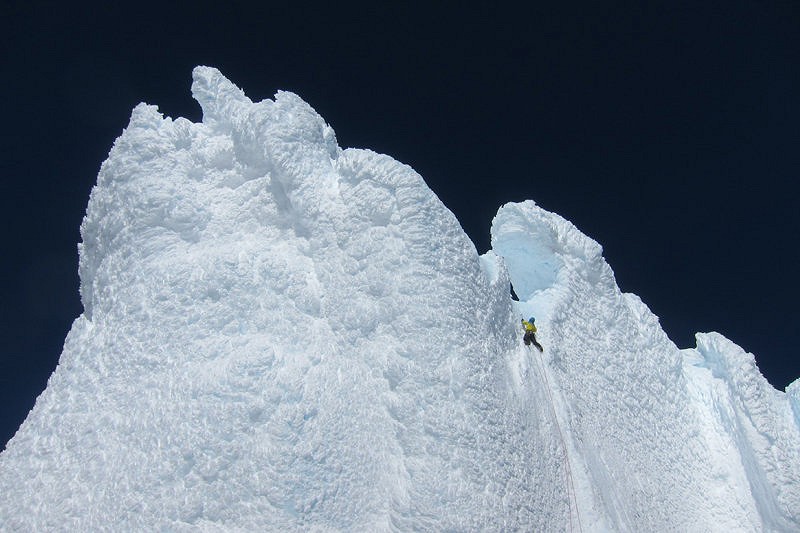
You are now based on Mallorca. What do you enjoy about living and climbing there?
Mallorca is a wonderful island to practise all kinds of outdoor sports, and especially climbing. There is a lot of rock everywhere. Above all, the most important thing is that it is almost always sunny and it is very quiet, compared with other famous areas of Spain. We would recommend deep water soloing or psicobloc. Undoubtedly it is the best place in the world for it. Not to mention all the fantastic places for sport climbing. Recommended places: Sa Gubia, Fraguel, Commune of Caimari, Alaró, Gorge Blau, Sestret, Hermit of Arta...the possibilities are endless and the surroundings wonderful.
What's next?
The next adventure for us, will be in Patagonia. We hope to have some luck and have one of those famous windows of good weather!
Eneko and Iker are sponsored by: Adidas Eyewear, Core Climbing, JetBoil, La Sportiva, Petzl, Red Bull, The North Face and Totem
- SKILLS: Top Tips for Learning to Sport Climb Outdoors 22 Apr
- INTERVIEW: Albert Ok - The Speed Climbing Coach with a Global Athlete Team 17 Apr
- SKILLS: Top 10 Tips for Making the Move from Indoor to Outdoor Bouldering 24 Jan
- ARTICLE: International Mountain Day 2023 - Mountains & Climate Science at COP28 11 Dec, 2023
- ARTICLE: Did Downclimbing Apes help Evolve our Ultra-Mobile Human Arms? 5 Dec, 2023
- ARTICLE: Dàna - Scotland's Wild Places: Scottish Climbing on the BBC 10 Nov, 2023
- INTERVIEW: Loki's Mischief: Leo Houlding on his Return to Mount Asgard 23 Oct, 2023
- INTERVIEW: BMC CEO Paul Davies on GB Climbing 24 Aug, 2023
- ARTICLE: Paris 2024 Olympic Games: Sport Climbing Qualification and Scoring Explainer 26 Jul, 2023
- INTERVIEW: Malcolm Bass on Life after Stroke 8 Jun, 2023



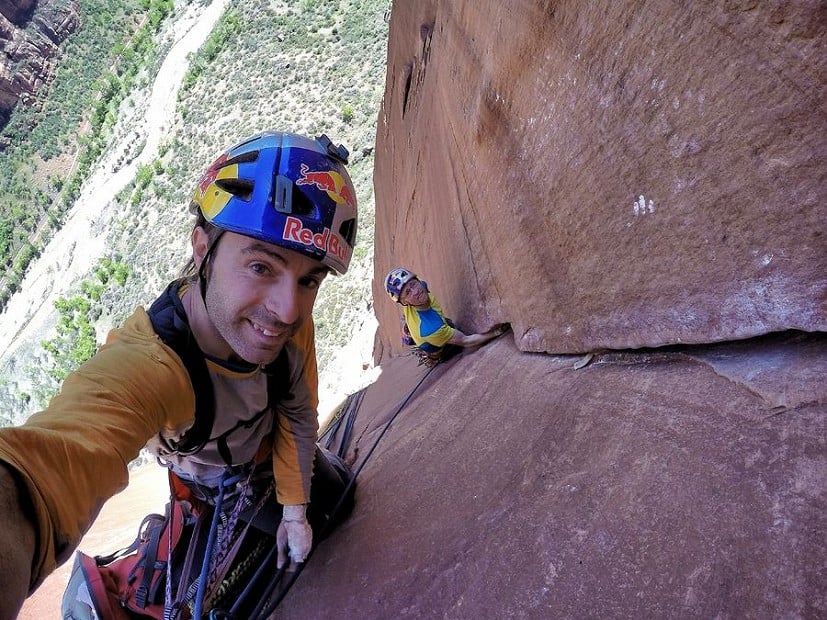
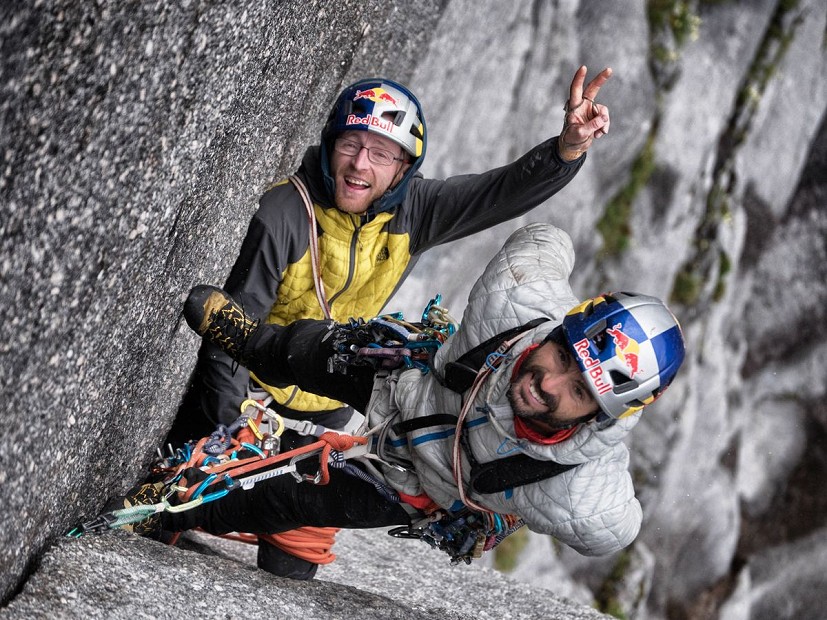
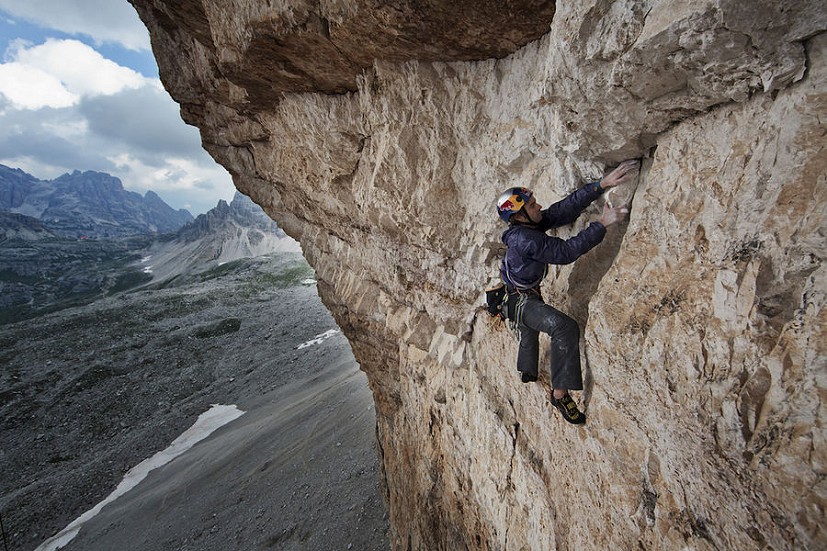
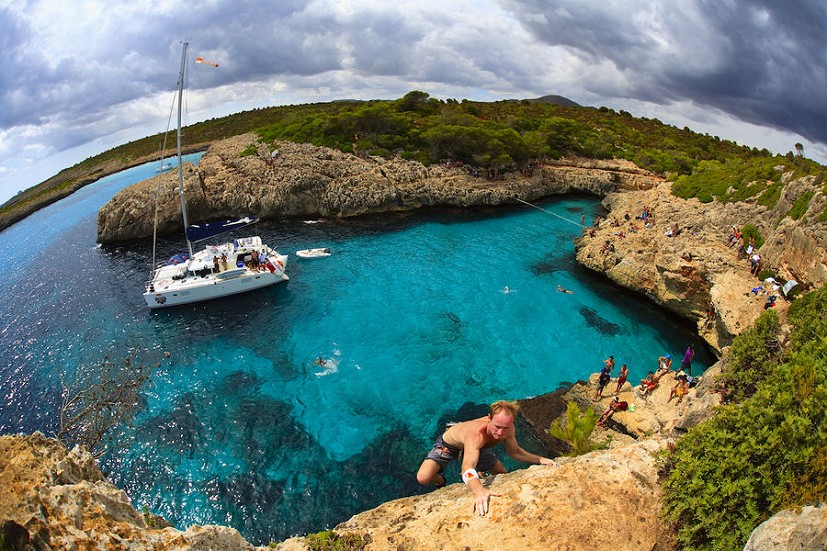
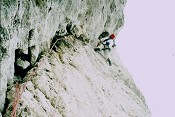
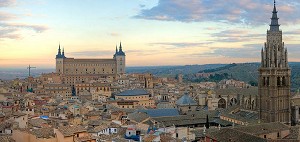











Comments